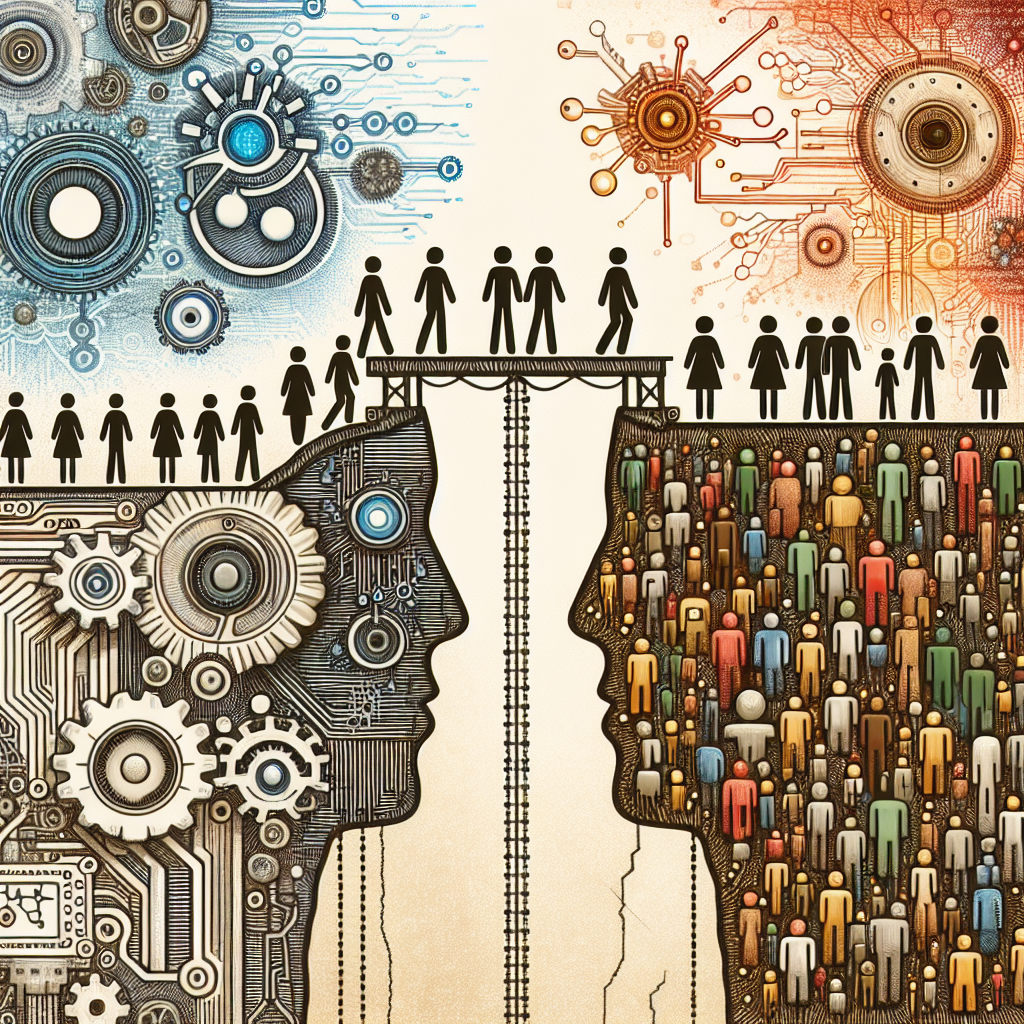Artificial intelligence (AI) has revolutionized many aspects of our daily lives, from the way we shop online to how we communicate with others. While AI offers many benefits, there are also social risks associated with its increasing presence in society. One of the key concerns is how AI will impact human relationships. In this article, we will explore the potential social risks of AI and discuss how it may affect our interactions with others.
AI and Human Relationships
AI has the potential to greatly impact human relationships in both positive and negative ways. On the positive side, AI can help us connect with others more easily and efficiently. For example, AI-powered chatbots can provide instant customer service support, allowing businesses to better engage with their customers. AI can also help us stay connected with friends and family through social media platforms and messaging apps.
However, there are also negative implications of AI on human relationships. One concern is that AI may replace human interaction, leading to a decrease in face-to-face communication. As AI becomes more advanced, people may rely on technology to fulfill their social needs, rather than seeking out real-life connections. This could lead to a decline in empathy and emotional intelligence, as people may become less attuned to the feelings and needs of others.
Another social risk of AI is the potential for bias and discrimination. AI algorithms are often trained on historical data, which may contain biases that can perpetuate discrimination. For example, AI used in hiring processes may inadvertently favor candidates from certain demographic groups, leading to a lack of diversity in the workplace. This can have serious implications for social equality and inclusion.
Furthermore, AI has the potential to erode privacy and data security, which are essential components of healthy relationships. As AI systems collect and analyze vast amounts of personal data, there is a risk that this information could be misused or exploited. This could lead to breaches of trust between individuals and organizations, undermining the foundation of strong relationships.
FAQs
Q: How will AI impact dating and romantic relationships?
A: AI has already begun to influence the world of dating and relationships. Dating apps like Tinder and Bumble use AI algorithms to match users based on their preferences and behavior. While this can lead to more efficient matchmaking, there are concerns about the impact of AI on romantic relationships. Some worry that relying on algorithms to find a partner may lead to a superficial approach to dating, where people prioritize physical appearance and other shallow criteria over deeper connections.
Q: Will AI make us more or less social?
A: The impact of AI on social behavior is a complex issue. While AI can facilitate social interactions through platforms like social media and messaging apps, there is also a risk that it may lead to a decrease in face-to-face communication. As people become more reliant on technology for social interactions, they may spend less time engaging in real-life connections. This could have negative consequences for social skills and emotional intelligence.
Q: How can we mitigate the social risks of AI on human relationships?
A: To mitigate the social risks of AI on human relationships, it is important to prioritize ethical considerations in the development and implementation of AI systems. This includes ensuring that AI algorithms are transparent and free from bias, as well as protecting individuals’ privacy and data security. Additionally, promoting digital literacy and encouraging healthy social behaviors can help people navigate the impact of AI on their relationships.
In conclusion, AI has the potential to greatly impact human relationships, both positively and negatively. While AI can enhance our ability to connect with others and improve communication, there are social risks associated with its increasing presence in society. By being mindful of these risks and taking proactive steps to address them, we can ensure that AI enhances, rather than detracts from, our relationships with others.

